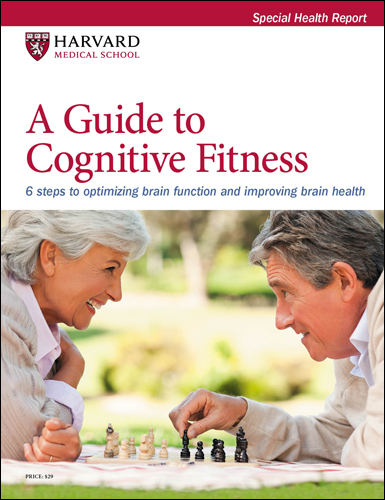Building a "cognitive reserve" offers brain protection in old age
In the journals
- Reviewed by Howard E. LeWine, MD, Chief Medical Editor, Harvard Health Publishing; Editorial Advisory Board Member, Harvard Health Publishing
Make consistent deposits into your savings account, and over time, you can build a substantial fund to cover future unexpected expenses. Your brain may work in the same way, suggests a study published online Aug. 3, 2022, by Neurology. It found that following certain healthy habits throughout life can create a "cognitive reserve" that may protect an aging brain from the effects of dementia.
In the study, researchers gave cognitive tests to 1,184 people from the United Kingdom's 1946 National Birth Cohort beginning at age 8 until age 69. When the participants reached their early 50s, the researchers calculated everyone's cognitive reserve index, a numerical value based on factors linked with healthy brains, such as education level, mentally challenging occupations, and lifestyle habits like social engagements, physical activities, and creative hobbies.
When the group was last tested at age 69, those with the highest cognitive scores also had the highest cognitive reserve index. This suggests that engaging in a mentally stimulating lifestyle when they were younger helped them retain thinking and memory skills later in life.
Is it too late to build a cognitive reserve in your 60s and 70s? Not necessarily. As the researchers noted, other studies have suggested that adopting brain-stimulating habits in older age can still offer protection against cognitive decline. And a combination of endeavor — mental, social, and physical — provides the best buffer.
About the Author

Matthew Solan, Executive Editor, Harvard Men's Health Watch
About the Reviewer

Howard E. LeWine, MD, Chief Medical Editor, Harvard Health Publishing; Editorial Advisory Board Member, Harvard Health Publishing
Disclaimer:
As a service to our readers, Harvard Health Publishing provides access to our library of archived content. Please note the date of last review or update on all articles.
No content on this site, regardless of date, should ever be used as a substitute for direct medical advice from your doctor or other qualified clinician.
















